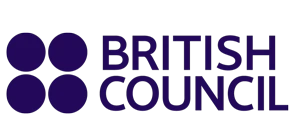Physiotherapy has rapidly become one of the most sought-after health professions in the UK. Applications to physiotherapy courses have risen sharply, and healthcare providers across the country are calling for more qualified physiotherapists to meet growing needs. But why exactly is this demand increasing, and what does it mean for students considering a career in this field?
NHS Pressures and Backlogs
The UK’s National Health Service (NHS) is facing significant challenges, with waiting lists for treatments at record highs. Physiotherapy, particularly for musculoskeletal conditions like back pain and joint problems, is in high demand. With limited resources and more patients requiring care, the NHS urgently needs more physiotherapists to reduce waiting times and improve access to treatment.
Ageing Population and Chronic Conditions
The UK population is ageing, and older adults are more likely to experience health conditions that require physiotherapy, such as arthritis, stroke rehabilitation, and reduced mobility. Chronic illnesses and lifestyle-related health issues are also increasing, meaning more people need long-term management through physiotherapy.
Post-COVID Rehabilitation
COVID-19 has left many patients with long-term health challenges. Physiotherapists are playing a key role in recovery, helping patients rebuild lung function, mobility, and strength. This has created new demand for physiotherapists in both hospitals and community care, highlighting the profession’s critical role in modern healthcare.
Lifestyle Changes and Musculoskeletal Issues
The rise of sedentary lifestyles, remote working, and obesity has led to a sharp increase in musculoskeletal disorders. Physiotherapists are now essential not only for rehabilitation but also for prevention and management of these conditions. This wider scope of practice has boosted demand across both NHS and private clinics.
Growth in Sports and Preventive Health
Physiotherapy is no longer seen as just a treatment after injury—it is now recognised as part of preventive healthcare and performance management. Athletes, sports clubs, and even everyday fitness enthusiasts seek physiotherapy to avoid injuries and optimise performance. This trend has expanded the demand for physiotherapists beyond traditional hospital settings.
Private Sector Expansion
As NHS waiting times grow, more people are turning to private healthcare providers for physiotherapy. Private clinics, rehabilitation centres, and corporate wellness programmes are expanding rapidly. This growth has created more job opportunities for physiotherapists and added to the profession’s appeal among students.
Strong Employability and Career Prospects
Physiotherapy is now considered one of the most secure career paths in the UK. Graduates enjoy strong employability, competitive salaries, and opportunities to work in hospitals, private practice, sports medicine, and community health. For students, this combination of stability and variety makes physiotherapy an attractive career choice.
Education and University Opportunities
UK universities are responding to demand by increasing the number of physiotherapy places, investing in modern training facilities, and developing specialist programmes such as neurological physiotherapy, respiratory care, and sports rehabilitation. Students now have more opportunities to pursue high-quality training and secure placements during their studies.
Conclusion
The rising demand for physiotherapy in the UK is driven by NHS backlogs, an ageing population, post-COVID rehabilitation needs, lifestyle changes, and the growth of private healthcare. For international students, this trend presents an excellent opportunity to enter a field where skills are in high demand and career prospects are strong.
If you are considering studying physiotherapy in the UK and want professional support with your application, scholarships, and career planning, click here to book a free consultation with Universitio.









